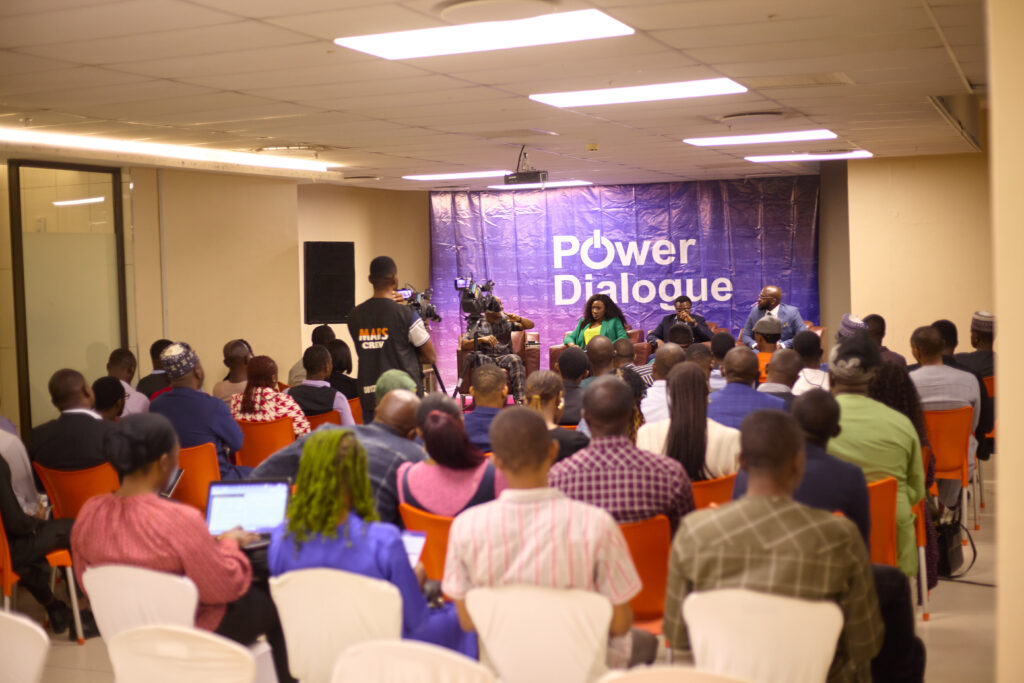The 96th Power Dialogue, convened by The Electricity Hub (TEH), a subsidiary of Nextier, marked a significant milestone in the ongoing discourse on Nigeria’s electricity supply challenges. This session, the 8th-anniversary edition, brought together a distinguished panel of experts representing diverse sectors to delve into critical issues surrounding electricity payment structures and sustainability.
The panellists, Engr Edu Okeke, Managing Director of Azura Power; Andrew Echono, County Program Coordinator at the United States African Development Foundation; Engr Chibueze Ekeh, CEO of CEESOLAR; and Sandra Osinachi Nwandem, Associate at Tope Adebayo LP, with extensive experience and insights, stressed the need for deregulation within Nigeria’s electricity sector.
Historically, only 35% of Nigerians had access to electricity in 2012 due to outdated infrastructure and government inefficiencies. Despite privatisation efforts in 2014, persistent issues like legacy debts and vandalism remain significant barriers to progress in the sector.
The speakers underscored the persistent gravity of Nigeria’s electricity supply challenges, highlighting issues such as outdated infrastructure, financial burdens from legacy debts, and operational inefficiencies that continue to impede progress, even more than a decade post-privatisation.
Engr Okeke emphasised that consumers ultimately bear the cost of electricity, whether directly or indirectly, through government subsidies. He advocated for billing based on actual consumption to enhance accountability and operational efficiency in the energy market.
They criticised the current subsidy frameworks, which foster inefficiencies and discourage distribution companies (DisCos) from operating as viable entities. The panellists called for a shift towards market-driven electricity pricing to promote sustainability and competitiveness.
During the Power Dialogue, the Azura MD highlighted the alarming lack of substantial investment in DisCos, pointing out that many are operating with negative equity. He proposed stringent regulations mandating significant capitalisation for prospective DisCo investors, stressing the crucial role of infrastructure upgrades in reducing Aggregate Technical, Commercial and Collection (ATC&C) losses.
Accurate metering emerged as a critical factor in improving transparency and accountability in electricity consumption. While acknowledging ongoing efforts in meter deployment, the panellists emphasised the necessity for a sustained commitment from DisCos and stakeholders to achieve comprehensive meter coverage and fair billing practices.
The discussion further emphasised the imperative of attracting investments to rejuvenate Nigeria’s power sector. The experts stressed the importance of fostering an environment conducive to corporate governance and investor confidence, essential for stimulating domestic and foreign investments.
Consumer education was another focal point, with panellists advocating for increased public awareness about electricity costs and timely payment. They argued that government subsidies distort market realities and promote a consumption model where consumers pay for actual usage.
Echono, for his part, highlighted the significance of stable regulatory frameworks in attracting investment, emphasising the need for investor confidence in achieving sustainable returns.
Speaking on several critical issues that require attention, Eke stressed that reducing tariffs involves examining the cost of capital. He highlighted efforts to engage with Discos, such as offering customer support, ensuring reliable supply, and implementing metering. He underscored the need for effective implementers to collaborate closely with Discos, adding that addressing the power challenge necessitates significant investment, which requires collaboration.
In concluding remarks, the panellists called for practical steps towards achieving a financially sustainable electricity sector in Nigeria. Key recommendations included continued deregulation efforts, efficient metering practices, enhanced collaboration between DisCos and implementation agencies, and fostering a consumer responsibility and accountability culture.

Nextier’s 96th Power Dialogue reaffirmed stakeholders’ commitment to addressing systemic challenges within Nigeria’s electricity sector. By implementing these strategic recommendations, stakeholders aim to pave the way for a resilient and sustainable energy future that meets Nigeria’s growing economic and societal demands.